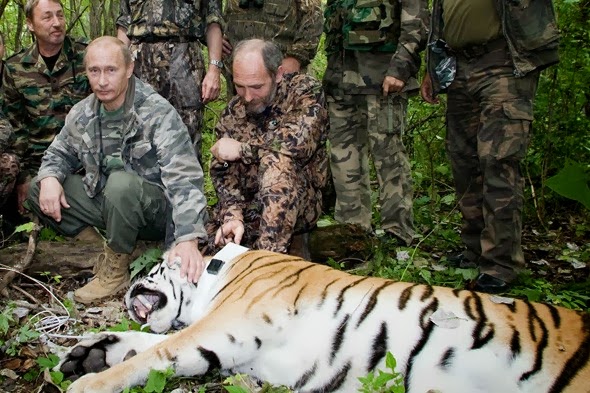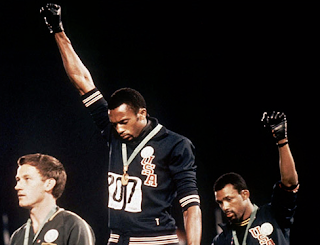Dead journalists. The existence of homosexuality. Anything which “offends” Eastern Orthodox Christianity. And now Vladimir Putin’s political allies in Russia’s Duma (parliament) put forth a bill on November 8th which provides for prison terms of up to 20 years for “spreading separatist propaganda.” The move comes on the heels of other assaults on free speech which have been damaging Russia’s already-precarious reputation as a new democracy: the jailing of members of the anti-clerical, anti-Putin dissident punk band Pussy Riot, the requirement that any charitable or nonprofit groups branching out into Russia have to register as “foreign agents,” and, most controversially in recent weeks, a new law criminalizing so-called homosexual propaganda. This last has prompted calls at the popular level for boycotts of next year’s Winter Olympics in Sochi, Russia, or at least for protest actions to disrupt the Olympics themselves. (Putin has promised that no athlete or spectator at the Games would be prosecuted under the new law, but that sort of misses the point.)
And what counts as “separatist propaganda”? Well, the most likely answer—as with “homosexual propaganda”—is: anything that makes the authorities decide they want to arrest you and throw you into a hole for as long as they want. This will doubtless include, along with violent insurgents who mean ill, many peaceful citizens with legitimate aspirations for autonomy for their ethnic and national communities.
It will also probably include much silliness as to what constitutes a separatist propaganda. The ban on so-called gay propaganda, incidentally, has gotten so silly that last month a Kremlin vexillologist addressed a minor kerfuffle over Russia’s far-eastern Jewish Autonomous Oblast (J.A.O.)—which is, as discussed recently in this blog, a godforsaken patch of Siberia set up by Josef Stalin as a dumping ground for a troublesome minority, though today almost no Jews live there. It seems the J.A.O. has a flag which some mistake for the “gay pride” flag. But as the federal government official explained, the Jewish Autonomous Oblast flag ...
... was not in fact the same as the “gay pride” flag:
The designer of the J.A.O. flag, Alexandr Valyaev, even chimed in, explaining, “ On its flag the gay movement uses seven stripes, not six. ... The rainbow is a divine symbol, taken from the Bible. God threw the rainbow from the sky into the wilderness of the desert as a symbol of hope. Gays used this divine symbol, the rainbow, but removed from its spectrum the light blue color, so it’s already not a rainbow.” In fact, the J.A.O. flag just has a lighter blue than the gay-pride flag; nothing is missing. But, nonetheless, I notice that this Valyaev fellow seems suspiciously well versed in what the gay-pride flag looks like. Check his papers. (Also, the Kremlin will have a harder time explaining away the official protocols for the display of the J.A.O. flag, which call for the flag-bearer to hang the banner out of his back left jeans pocket, and then take it out and swing it above his head in a rotary motion when “Disco Inferno” comes on.)
 |
| Islamists’ proclaimed “Caucasus Emirate” |
Smaller, lesser known movements persist as well. President Boris Yeltsin had told Russia’s constituent republics and other jurisdictions (oblasts, okrugs, krais, etc.) to “take as much autonomy as you can stand.” But Putin has reversed that course—withdrawing de facto autonomous status from places like Tatarstan and Bashkortostan and even installing loyal Kremlin stooges to run places like Chechnya. There is always the possibility that some of these other regions will get ideas and rise up—from the Finno-Ugrian-speaking Karelians along the border with Finland to the mostly-Buddhist Kalmyks and Tuvans, to the Sakha (Yakuts), Altai, Chukchi, and other peoples of the far east, to ethnic-Russian frontiersman who would like to see Siberia (all of Russia east of the Urals—i.e., 10% of the land surface of the world) become its own independent nation (some have even called for Siberia to join the United States), to “Volga Germans” who once had their own republic within Russia, to residents of the Kaliningrad Oblast exclave in former German territory who would like to split and join the independent Baltic States, and even to revived Cossack hosts along the border with Ukraine and Kazakhstan and the cis-Caucasian steppes who recall their days of glory when separate Cossack republics flicked in and out of existence during the Russian Civil War that followed the 1917 Bolshevik revolution.
 |
| Could it come to this? |
 |
| Circassians remember their genocide. |
 |
| Russia’s newly empowered Cossacks. Don’t worry, they’ll keep things nice and orderly and peaceful—you know, like before. |
 |
| Tatarstan’s flag. Will it fly again? Maybe even in Sochi? |
[You can read more about Circassia, Siberia, Abkhazia, South Ossetia, Circassia, Chechnya, and many other sovereignty and independence movements both famous and obscure in my new book, a sort of encyclopedic atlas just published by Litwin Books under the title Let’s Split! A Complete Guide to Separatist Movements and Aspirant Nations, from Abkhazia to Zanzibar. The book, which contains 46 maps and 554 flags (or, more accurately, 554 flag images), is available for order now on Amazon. Meanwhile, please “like” the book (even if you haven’t read it yet) on Facebook and see this interview for more information on the book.]







































